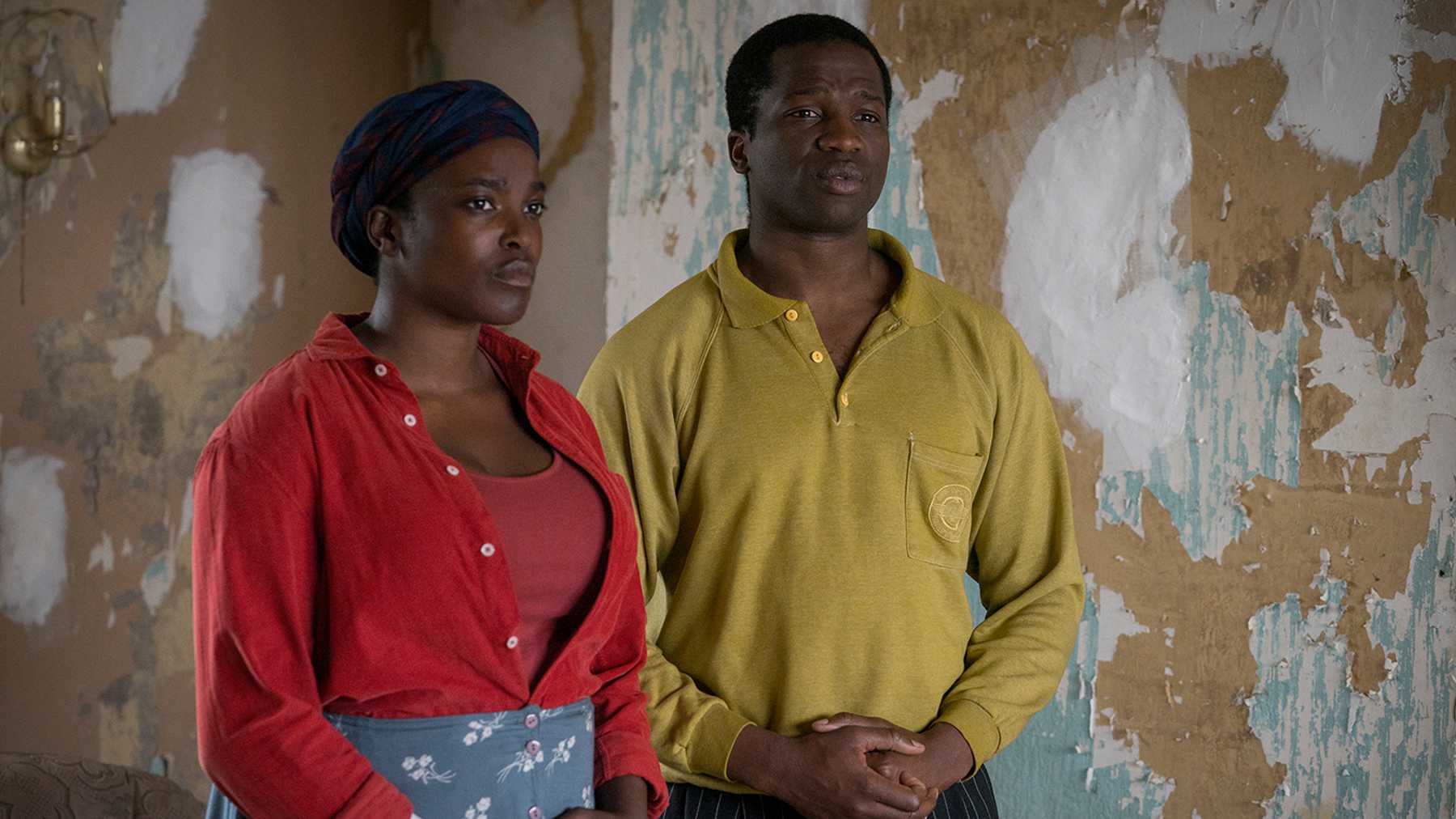Netflix’s new politically charged horror-thriller His House follows the agonising story of Bol and Rial, a refugee couple, as they escape the horrors of war-ravaged Sudan and attempt to start a new life in an inner-city residential town of London. Director, Remi Weekes, poignantly tackles real-world, heart-breaking issues of asylum seekers and the mental health disorders and struggles met during their ‘freedom’, such as Survivors Syndrome (also known as survivors guilt). Since it’s release last month-end, the film has sustained a 100% rating on Rotten Tomatoes and has been critically acclaimed as an honest and thoughtful critique which challenges the hardships of refugees even today.
The non-linear narrative ‘begins’ with the two protagonists leaving Sudan with their daughter. They travel using a number of vehicles and, finally, fighting a stormy sea in which only the pair survive, they reach the UK. Following their arrival, they are given a temporary house on the condition that they follow their bail regulations – ‘you’re being released as asylum seekers. Not citizens, not yet’ says the policeman. And so, the story begins…
Through a raw and intimate reflection on Bol and Rial’s adjustment to a foreign country, Weekes highlights the nightmarish world in which they live. Haunted not only by their troubled past but, the journey which lies ahead of them – should they stay – we follow them in their attempts to re-settle into a new life.
Initially, we are introduced to a bug-infested property on the verge of collapse. Nevertheless, more-pressing issues are bought to our attention through the polluted gardens, late-night parties and fights which take place just outside of their property. Perhaps, the real horror of the film lies in the injustices of the system which abandons those who seek help the most. A relevant and current topic and, perhaps, an attempt to directly challenge those in charge. Weekes suggests that the prospects of reality are much scarier than the supernatural; ‘after all that we’ve endured…you think that I can be afraid of ghosts?’ mutters Rial as tensions rise over a heated dinner between Bol and herself. On the other hand, Weekes relies on the house’s structural integrity (or lack thereof) and the unsettling single framing to intensify the rising tensions of lurking evil. And, before long, the horror sets heed before us.
Perhaps what Weekes does so well, is the portrayal of internal conflict as Bol and Rial attempt to integrate into the British culture. Bol chants a football anthem, and, later, brings home cutlery to eat dinner with. This stark cultural change is intensified as Rial’s pre-made dinner is laid out onto the floor – in tradition to their habits back in Africa. This critiques the expectation that more privileged communities hold towards asylum seekers: to fully integrate into society, one must erase their past, their identity. The film, at times, is more unsettling than scary and invites audiences to feel the unease and anxieties which refugees feel when settling into new cultural traditions and surroundings. This is best demonstrated through the somewhat claustrophobic, maze-like alley which Rial gets lost in, only to be humiliated when she finally asks for help. Weekes, therefore, identifies that whilst the two have escaped from violence of war, they have found themselves in another (internal) battlefield; equally lost and ‘homeless’.
Whilst for the majority of the film we are kept in the dark (quite literally) about what haunts the two; we soon uncover the secrets of their past in a gut-wrenching flashback sequence. Perhaps, it is here when we truly relate to the protagonists. The dark figures which hide behind the walls act as a distant and faint, but very real and present haunting of their past lives. The pressures of their traumatic past begin to put a strain on their relationship.
Perhaps the promise of a new life wasn’t quite what Bol and Rial had hoped or imagined. However, their resilience and determination to fight off their insecurities and demons reflect the real strength that lies in those who escape war and settle somewhere new. The film concludes with the same motif carried out throughout, but this time they belong: ‘this is our home’.
Image Credit: Empire

